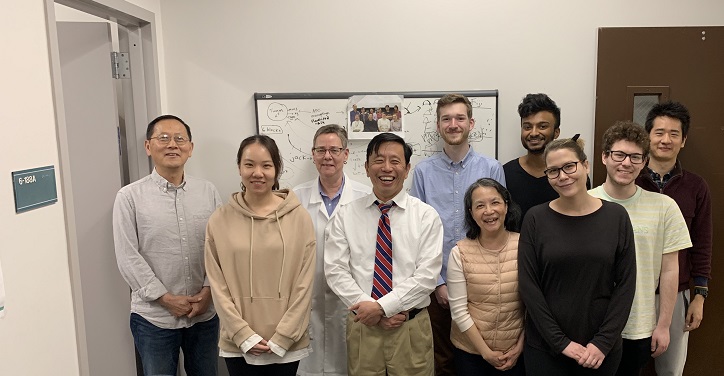FACULTY

|
Richard Lin Professor MD, University of California, San Francisco, 1988 Biology of Phosphoinositide 3-Kinases Basic Science Tower, T-6, Room 126 Stony Brook University Stony Brook, NY, 11794-8661 Phone: (631) 444-1638 Email: Richard.Lin@sunysb.edu |
| Lab Member
|
Ya-Ping Jiang, MD Han Han (Biomedical Engineering PhD student) Chuankai Chen (Genetics PhD student) Giuseppe Caso, MD, PhD |
| Research
|
Biology of Phosphoinositide 3-Kinases (PI3Ks) Abnormal upregulation of PI3K signaling is one of the most common oncogenic contributors in the development of human cancers. We discovered that the p110α isoform of PI3K is essential for the initiation of pancreatic cancer caused by oncogenic Kras (Wu, et al. Gastroenterology 2014). We are now investigating the role of p110α in the maintenance and progression of pancreatic cancer. We reported that downregulation of p110α signaling due to drug inhibition or diabetic conditions changes multiple ion currents in cardiac myocytes that result in prolongation of the QT interval on the ECG (Lu et al., Science Translation al Medicine, 2012). QT prolongation in humans can increase the risk of fatal ventricular arrhythmias. We are now studying the mechanisms by which PI3K signaling regulate cardiac ion channel function.
|
| Selected Publications
|
Dr. Lin's publications may be found at the following NCBI link: http://www.ncbi.nlm.nih.gov/sites/myncbi/richard.lin.1/bibliography/41160594/public/?sort=date&direction=descending |
